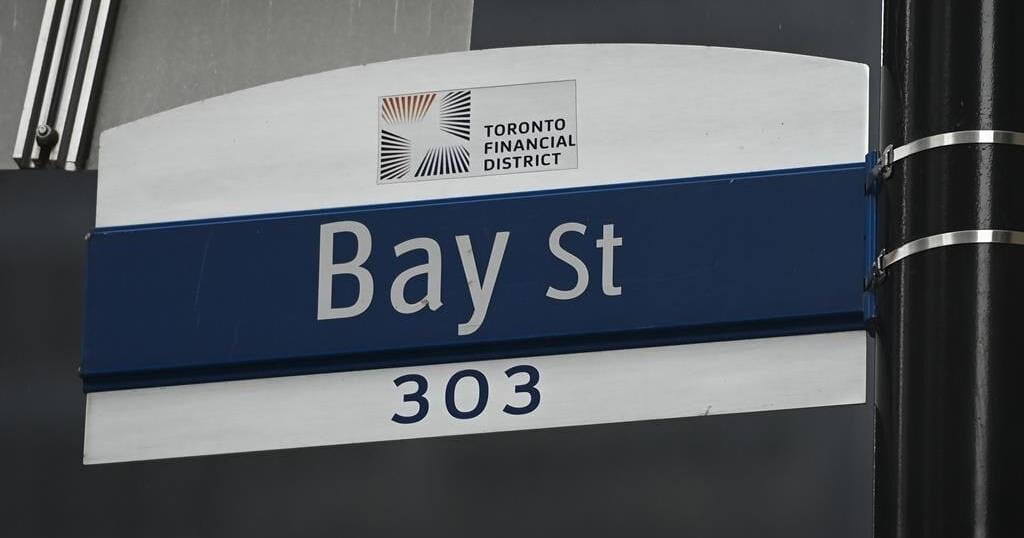Switching to an online-only bank more than a decade ago was just another way Jessica Morgan was trying to save money at the time as a new grad.
“Saving money was the main motivator,” Morgan, now a financial educator and founder of Canadianbudget.ca, recalled.
“After graduating, you no longer qualify for student rates where you might get free banking and I didn’t want to go back to paying fees for giving the bank my money to hold.”
Digital lenders have grown in popularity in recent years, with more players popping up in the sector and traditional banks beefing up their online offerings. But some Canadians may still be hesitant to bank with a financial firm that doesn’t have physical branches where you can talk to an employee face-to-face.
Natasha Macmillan, director of everyday banking at Ratehub.ca, says some of that hesitancy to switch to an online lender is loyalty.
“There’s a large portion of Canadians who have had the same bank account for many years … they’re just hesitant to switch because it’s what they know.”
Tedious paperwork to switch banks can also discourage many Canadians from making the move despite the ease of opening online-only bank accounts, Macmillan added.
“There’s that aspect of you still need to sit down, do your research and then pick that online-only bank,” she said.
Data security concerns have also sowed seeds of doubt among many who are contemplating the switch, and prefer to continue to work with traditional banks with long-established reputations, Macmillan said.
Morgan said she often hears concerns from her clients — “What if I need help? Is this bank safe to use?” or more logistical questions, such as having access to an ATM or getting certified cheques.
One of the only major snags she personally recalls running into with her online lender was when she was purchasing a home.
“I needed to get a certified cheque, like, right away if I was going to put in an offer,” Morgan said. “You can get a certified cheque but it takes three days or so. They courier it to you.” She ended up going to her husband’s traditional bank to get day-of service.
Most online-only banks tend to offer banking products, such as savings accounts, with higher interest rates compared with traditional banks. Many also offer access to cash through any bank ATM without charge.
“Digital banks have generally a lower cost structure than a traditional bank and those savings will be passed on to the customer,” said Mahima Poddar, group head of personal banking at EQ Bank. For example, EQ offers a high-interest chequing account with no fees on everyday banking and unlimited transactions.
But customers should be aware they can’t deposit cash into their account and they can only withdraw bills, not coins.
“We don’t offer depositing of cash, but all of our research has shown that the use of cash is really diminishing,” Poddar said. “There are very few reasons why you need to urgently deposit.”
Customers also have to get used to doing all their banking by phone or through the company’s website or app.
Poddar added she thinks Canadians are more open to change, especially after the COVID-19 pandemic, which accelerated the need for better online banking services.
While trust in traditional institutions plays a strong role in choosing a bank, Poddar said EQ has the same level of protection and is governed by the same regulators as the big six banks in the country.
Lisa Brandt, 61, switched to online-only Manulife Bank more than five years ago. She says she has benefited from the move and has saved a lot of money over time on various banking fees.
“It puts me in the driver’s seat,” she said.
However, she did run into an issue once with depositing a cheque after she sold her home.
“If you’re going to deposit a couple hundred thousand dollars from a house sale, you’ll have to courier (the cheque) to them,” she said.
“It’s not quite as simple as walking into a branch and saying, ‘Give me my money.'”
While many online-only banks have been growing their consumer banking product offerings, traditional banks tend to have more financial product options, not only for individuals but also for small businesses.
“What we have heard from some Canadians is while they might be moving their chequing, savings and GIC accounts to those (online-only) spaces, they’re still maintaining a mortgage with the big players,” Macmillan said.
It’s not about moving all assets to one bank but weighing options on an individual basis, such as picking a bank with the lowest fee on a chequing account but moving investments to another bank for a better return, she explained.
“We’re starting to see that flexibility where people are shopping around for the best opportunity that can give them the most bang for their buck,” Macmillan said.
She added it is important for people to identify why they’re thinking of switching and find an online-only bank that aligns with their goals.
“It’s finding that happy medium where you do feel trust and security, that lower cost and fees and also the convenience and accessibility,” Macmillan said.
This report by The Canadian Press was first published Sept. 26, 2024.


























